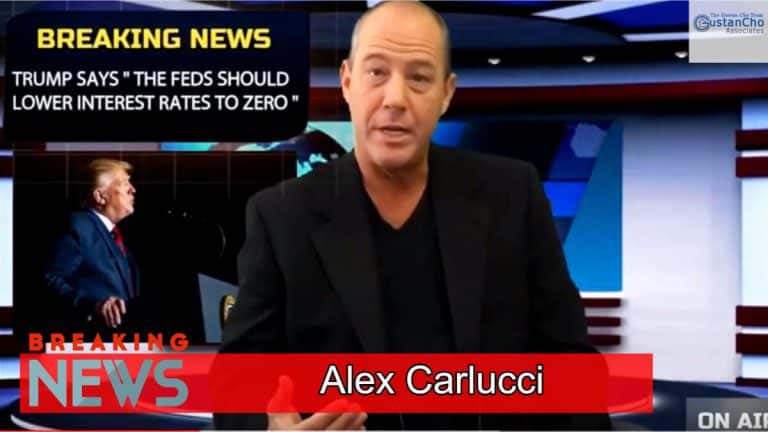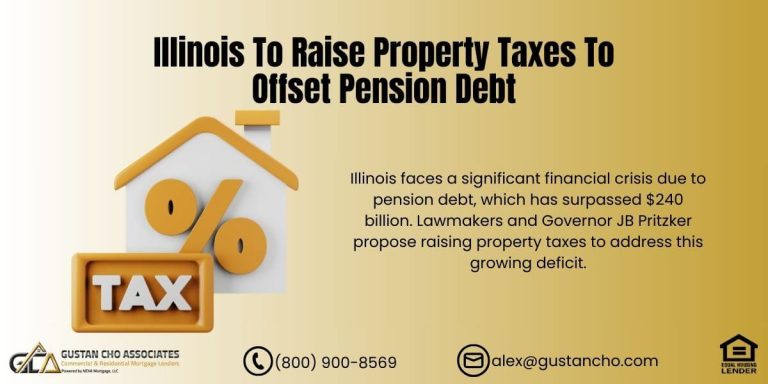Buying a house during a recession can feel scary. News headlines discuss job losses, high prices, and interest rate changes. At the same time, you may come across homes that fit your needs, and worry that you will miss your chance.
This guide is here to help you buy a house even when the economy’s taking a hit. We’ll break it down into plain and simple language so it’s easy to understand. We will discuss the pros, the risks, and a step-by-step plan so you can make an informed, smart decision for your family.
Key Takeaways About Buying a House During Recession
- Buying a house during recession can be a good move if your job is stable and you plan to stay for a while.
- A recession can bring less competition and more flexible sellers, but lending rules can get tighter.
- Your job security, savings, credit, and debt matter more than “timing the market.”
- You do not always need 20% down when buying a house during recession. There are low-down-payment and even zero-down options.
- A lender with no overlays, such as Gustan Cho Associates, can approve loans that many banks would otherwise turn down.
What Does a Recession Mean for Homebuyers?
Before considering buying a house during recession, it’s helpful to understand what a recession really is.
A recession is a time when:
- The economy slows down
- Some people lose jobs or work fewer hours
- Companies earn less money
- People spend less
During a recession:
- Some areas see home prices cool or dip
- In other areas, prices may still go up if there is very low inventory
- Interest rates may move up or down depending on what the Federal Reserve does
The key point is that the economy can be weak, but housing can still be strong in many markets. That is why buying a house during recession is not always a bad idea. It depends on your personal situation, not just the headlines.
Thinking About Buying a House During a Recession?
Call or text Gustan Cho Associates at 800-900-8569 or click “Get A Quote” to see if buying a house during a recession is a smart move for you
Pros of Buying a House During Recession
There can be real benefits to buying a house during recession:
1. Less Buyer Competition in Some Areas
During slow periods, some buyers become cautious and stay on the sidelines. That means:
- Fewer bidding wars
- More room to negotiate
- More time to think before making an offer
If you are buying a house during recession with a strong pre-approval, you can stand out.
2. Sellers May be More Flexible
Some sellers need to move due to job changes, family reasons, or financial stress. They may be more open to:
- Lower prices
- Closing cost credits
- Repairs or home warranties
- Flexible closing dates
Buying a house during recession can give you more power at the negotiating table.
3. Builder and Lender Incentives
In some markets, builders and lenders offer:
- Rate buydowns
- Closing costs help
- Free upgrades
When buying a house during a recession, always ask about the incentives or credits that might be available.
Risks of Buying a House During Recession
There are real risks you must understand when buying a house during recession.
1. Job Loss or Income Cuts
The biggest risk is losing your job or having your hours cut. If your income is shaky, buying a house during recession can put serious stress on your budget.
Ask yourself:
- If I lost my job, how long could I make the payment?
- Do I have skills that are in demand?
- Is my company or industry stable?
2. Home Values Can Dip in the Short Term
Even if you buy a good home, prices in your area might:
- Stay flat for a while
- Go down a bit before they go up again
If you are buying a house during recession and plan to sell in one or two years, that can be risky. If you plan to stay 5–7+ years, short-term ups and downs matter less.
3. Lending Rules Can Tighten
During recessions, some lenders:
- Add more overlays (extra rules on top of FHA, VA, USDA, Fannie Mae, Freddie Mac)
- Raise their credit score requirements
- Ask for more reserves and paperwork
This is why buying a house during recession is easier with a lender that does not have overlays and is used to tough files.
Questions to Ask Before Buying a House During Recession
Before you decide to buy a house during a recession, ask yourself a few simple but powerful questions.
How Safe is My Job and Income?
- Have you been with your employer for at least 2 years?
- Is your industry growing or shrinking?
- Do you have a backup plan if your income changes?
If you feel good about your job and skills, buying a house during recession may make sense.
Scared To Buy a House During a Recession?
We’ll walk you through payment, rates, and risk so you can decide with confidence
Do I have Enough Savings?
Try to have:
- Your down payment
- Closing costs
- At least 3–6 months of full expenses in an emergency fund
If you don’t have any savings, buying a house during a recession might be too stressful right now.
Is My Credit Ready?
When buying a house during recession, credit matters:
- Recent late payments can hurt your approval
- High credit card balances can raise your DTI and lower scores
- Collections and charge-offs may need to be reviewed
At Gustan Cho Associates, we often approve borrowers with credit scores down to 500 on FHA loans (per HUD guidelines) because we have no lender overlays. If other lenders told you no, that does not always mean you cannot buy a house during recession.
Am I Planning to Stay Put?
Buying a house during recession works best if you:
- Plan to stay at least 5 years or more
- Are you ready for the costs of owning (repairs, taxes, insurance)
- Want to build long-term equity, not just flip
Money You Need When Buying a House During Recession
You don’t always need a 20% down payment when buying a house, especially during a recession. Here are some options:
- VA loans: Qualified veterans and active-duty service members are not required to make a down payment.
- USDA loans: No down payment in many rural and some suburban areas.
- FHA loans: Down payments as low as 3.5%, even for those with lower credit scores.
- Conventional loans: Down payments from 3% to 5% for many first-time buyers.
Also, keep these costs in mind:
- Closing costs: Typically, they range from 2% to 5% of the home’s value.
- Prepaids: Costs for taxes, insurance, and interest.
- Reserves: Some lenders may require 1 to 6 months of mortgage payments saved.
When buying a house during recession, your loan officer can help tailor a plan that fits your budget, rather than just focusing on what you qualify for.
Smart Ways to Save for Down Payment and Closing Costs
Saving money can feel hard, especially during a slowdown. Here are simple ideas that help many of our clients who are buying a house during recession:
- Separate savings account just for the home
- Set aside a portion of your paycheck in a dedicated “home fund” account.
- If you don’t see it, you’re less likely to spend it.
- Automatic transfers
- Set up a small automatic transfer each week or month.
- Even $25–$100 adds up fast over a year or two.
- Tax refunds and bonuses
- Treat refunds, bonuses, or side-gig income as “home money.”
- Don’t change your lifestyle; feed your savings instead.
- Retirement account options
- Some 401(k) plans let you borrow for a primary home.
- Always speak with a tax professional before using retirement funds.
- Gift funds
- Many loan programs allow gifted funds from family for your down payment and/or closing costs.
These simple habits can make buying a house during recession more realistic than it first seems.
Loan Options When Buying a House During Recession
Loan Options When Buying a House During Recession
When buying a house during a recession, choosing the right loan is crucial. Here’s a breakdown of different loan options:
FHA Loans
- Down Payment: 3.5%
- Credit Flexibility: Accepts scores as low as 500 with some lenders
- Ideal For: Buyers with high debt or previous credit issues
VA Loans
- Down Payment: 0% for eligible veterans and active-duty service members
- Insurance: No monthly mortgage insurance
- Guidelines: Flexible if you have good residual income
USDA Loans
- Down Payment: 0% for eligible rural and some suburban areas
- Income Limits: Affordable options if you qualify
- Best For: Buying homes in smaller towns during a recession
Conventional Loans
- Best For: Those with stronger credit and steady income
- Down Payment: 3–5% for many first-time buyers
- Long-Term Benefit: Lower mortgage insurance costs
Non-QM and Alternative Loans
If you have tricky income or credit, non-QM loans may help:
- For: Those with unique income or credit situations.
- Examples: Bank-statement loans and DSCR loans for investors
- Caveat: Generally have higher interest rates, but can help you buy now and refinance later when eligible for a standard loan.
First-Time Buyer Worried About the Word ‘Recession’?
Get a clear, step-by-step guide instead of scary headlines
How Credit Scores Affect Buying a House During a Recession
Your credit score affects:
- Approval chances
- Interest rates
- Mortgage insurance costs
- Borrowing limits
Tips if you are buying a house during recession:
- Make sure all payments are on time—no late payments in the last year, if possible.
- Keep credit card balances low—ideally under 30% of your limit.
- Avoid opening many new accounts just before applying for a mortgage.
- Check your credit reports for errors and dispute any mistakes.
At Gustan Cho Associates, we help borrowers with late payments, collections, charge-offs, and low credit scores. With the right credit strategy, buying a home during a recession is possible.
Buying a House During a Recession With Low Credit Scores
Sometimes the best way to understand buying a house during a recession is to see a real example.
Meet John and Lisa
- Married couple with two kids
- Renting a small townhome
- Both work full-time: John in manufacturing, Lisa in healthcare support
- They were tired of rising rent and wanted a yard for their kids
When a recession hit, John’s company cut overtime, and they worried about money. At the same time, their landlord hinted that the rent might increase again. They started asking if buying a house during a recession was even possible.
Their Starting Point:
- Credit scores in the mid-500s due to old, late payments
- About 4% down payment saved
- Some credit card debt, but they were making on-time payments
- No major savings beyond the money set aside for buying a home
They first went to a big bank. The loan officer took one look at their scores and said:
“Come back when your scores are at least 620, and you have more money saved.”
They felt discouraged and almost gave up on buying a house during recession.
What Changed When They Called Gustan Cho Associates
John found Gustan Cho Associates online and noticed we specialize in:
- No lender overlays
- Manual underwriting
- Approvals with credit scores down to 500 on FHA loans (per HUD guidelines)
They called for a free mortgage consultation. The loan officer reviewed:
- Their full credit reports
- Their income and job history
- Their rent history (on-time payments for the past 24 months)
Instead of just saying “no,” the loan officer gave them a clear plan for buying a house during a recession:
- Do not open any new credit.
- Pay down a few small credit cards to reduce your credit card utilization.
- Keep all payments on time for the next 60–90 days.
- Add a small deposit each month to your savings to show better reserves.
The Approval
After a short period of following the plan, they re-ran credit. Their scores bumped up slightly, but more importantly, their overall file looked stronger:
- Stable jobs, even during the recession
- On-time rent payments
- Lower credit card balances
- A small emergency fund plus a down payment
Through FHA manual underwriting with no overlays, Gustan Cho Associates was able to:
- Approve them for an FHA loan with 3.5% down
- Use their strong rent history as a positive factor
- Structure the deal with seller-paid closing costs so they keep some savings in the bank
They found a single-family home in a neighborhood where prices had softened a bit due to the recession. The seller was willing to negotiate because there were fewer buyers in the market. John and Lisa closed on their new home and ended up with a monthly payment similar to their old rent, but now they are building equity.
Key Lessons From This Case Study
- Buying a house during recession is possible even with low credit scores when you have job stability and a strong payment history.
- A big-bank denial does not always mean you cannot buy. It may mean that the lender has heavy overlays.
- Working with a lender that offers no overlays and manual underwriting can turn a “no” into a “yes,” especially during a recession.
- Having a simple action plan and a little time can make a huge difference.
Why Work With a Lender With No Overlays in a Recession
During a recession, many banks and lenders tighten up:
- Higher credit score minimums
- Stricter debt-to-income caps
- No manual underwriting
- Extra rules on top of FHA, VA, USDA, Fannie Mae, and Freddie Mac
These additional rules are referred to as lender overlays.
Gustan Cho Associates is known for:
- No lender overlays on FHA, VA, USDA, and conventional loans
- Manual underwriting for borrowers who do not get an automated approval
- Approvals for lower credit scores and complex files that other lenders deny
If you are buying a house during a recession and have already been turned down, our team may still be able to help you.
Buying a House During a Recession With Less-Than-Perfect Credit?
We offer FHA, VA, and non-QM options many banks won’t touch
Step-by-Step Plan for Buying a House During Recession
Here is a simple plan you can follow:
- Free mortgage consultation
- Talk to a loan officer about your income, credit, debts, and goals.
- Ask if buying a house during a recession makes sense for your situation.
- Review your credit and budget.
- Pull your credit reports.
- Create a comprehensive budget that includes mortgage, taxes, insurance, utilities, food, gas, childcare, and other essential expenses.
- Choose the right loan program.
- FHA, VA, USDA, conventional, or non-QM.
- Your loan officer will determine which option fits best.
- Get a strong pre-approval
- Turn in income docs, bank statements, and ID.
- Ask for a TBD underwrite if possible for extra strength in a recession market.
- Work with a smart real estate agent.
- Look for someone who understands local recession trends.
- They should help you avoid overpaying and pick a solid property.
- Don’t stretch your budget.
- Just because you qualify for a certain amount does not mean you should spend it.
- When buying a house during a recession, comfort and safety are top priorities.
- Keep your savings intact.
- Do not drain every last dollar.
- Keep an emergency fund for job changes and repairs.
When It May Be Better to Wait
Sometimes the smartest move is to wait on buying a house during a recession.
You may want to hold off if:
- Your job or hours are unstable
- You have no savings and are living paycheck to paycheck
- You had recent serious credit problems (multiple late payments, new collections)
- Your debt is already very high
- You would need to use all of your savings for the purchase
If this is you, we can still help by building a roadmap so you can buy a house after you fix a few key items.
How Gustan Cho Associates Can Help You Buy a House During a Recession
Gustan Cho Associates is a nationwide mortgage company that’s licensed in several states and is known for:
- No lender overlays on FHA, VA, USDA, and conventional loans
- Manual underwriting and common-sense approvals
- Experience with low credit scores, high debt, and recent credit issues
- Fast response times and straight answers
If you are considering buying a house during a recession, you don’t have to guess alone. Please contact us at 800-900-8569, text us for a faster response, or email us at alex@gustancho.com.
We are available 7 days a week for a free, no-obligation mortgage consultation. We will review your income, credit, and goals and give you clear advice on whether buying a house during recession is right for you now—or if it makes more sense to wait and follow a plan.
Frequently Asked Questions About Buying a House During Recession:
Is Buying a House During Recession Always a Bad Idea?
No. Buying a house during recession can be smart if your job is stable, you have savings, and you plan to stay in the home for many years. The key is your personal situation, not fear of the news.
Will Home Prices Crash if I Buy a House During a Recession?
Not always. Some areas see prices drop, while others remain stable, and some continue to rise. When buying a house during a recession, focus on a good home, a fair price, and a payment you can afford for the long term.
How Much Down Payment do I Need When Buying a House During Recession?
You may be able to buy a house during a recession with 0% down (VA or USDA), 3.5% down (FHA), or 3–5% down (conventional), depending on your credit and income. You also need to plan for closing costs and reserves.
Is it Harder to Get Approved When Buying a House During a Recession?
It can be, because many lenders tighten rules. However, a lender with no overlays, such as Gustan Cho Associates, can often approve borrowers that big banks typically deny. That makes buying a house during a recession more possible than you may think.
Should I Wait for Rates to Drop Before Buying a House During Recession?
No one can perfectly time rates. If you find a home you love and can afford the payment safely, buying a house during a recession now and refinancing later when rates drop can be a good strategy. The most important part is that the payment fits your budget today.
This article about “Buying a House During Recession: A Simple Guide for Buyers” was updated on December 2nd, 2025.
Ready To Buy a House During a Recession—But Only the Smart Way?
Work with a lender that gives you a simple guide, not sales pressure









